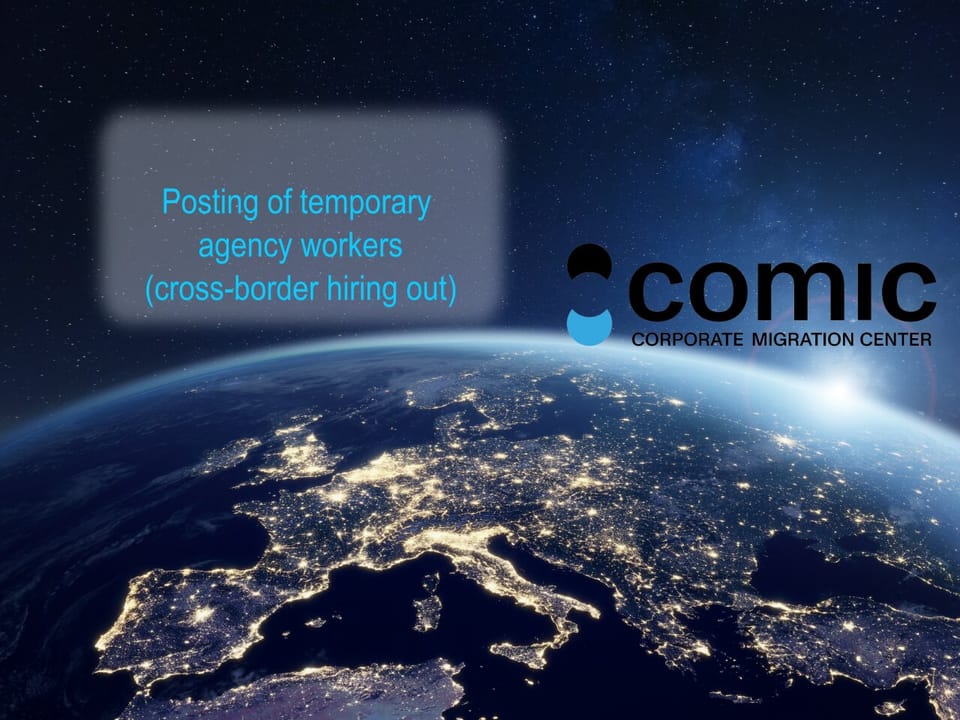Posting of temporary agency workers (cross-border hiring out)

Although regulated by Directive 96/71/EC as amended (Posting of Workers Directive), the transnational hiring out of workers raises questions whose answer can be found in other EU law texts, its interpretation by the European Court of Justice, national laws and jurisprudence.
Hereinafter, a non-exhaustive list of questions must be considered by undertakings involved in transnational hiring out of workers:
· The determination whether a transnational hiring out of workers is lawful must be carried out from the perspective of EU law, or national law of the Member State in whose territory work is performed?
· What is the difference between hiring out, subcontracting, and outsourcing, and which laws are relevant in defining these concepts?
· To “reverse” a hiring out scenario, it is sufficient to conclude a different contract and appoint a team manager?
· In certain Member States, in a subcontracting chain, the non-existence of a contract of provision of services concluded by and between an employer (subcontractor) and the end user, automatically triggers hiring out of workers. How to address such situations?
· Which provisions laid down by Directive 96/71/EC as amended by Directive 2018/957/EU are relevant to the transnational hiring out of workers?
· What is the difference between placement agencies and temporary employment undertakings in the meaning of Article 1.3 (c) Directive 96/71/EC as amended?
· Any of these concepts are equivalent to the concept of temporary work agency in the meaning of Article 3.1 (b) Directive 2008/104/EC on temporary agency work?
· Are temporary employment undertakings bound by the obligation to register in the host Member State (where relevant), on the same ground as placement agencies?
· The user undertaking failure to inform the employer hiring out workers of the relevant applicable terms and conditions of employment (in the meaning of Article 3.1b Directive 96/71/EC as amended), may trigger the latter’s liability, the former’s liability, or joint liability for failure to comply with terms and conditions of employment?
· Is the information provided by the user undertaking sufficient to determine the relevant applicable terms and conditions of employment (e.g., where collective agreements which derogate from the principle of equal treatment are relevant)?
· What are the basic working and employment conditions in the meaning of Article 5 Directive 2008/104/EC, that must be granted to workers in situations of transnational hiring out?
· Are performance-related bonuses which would have been paid to a worker directly recruited by the user undertaking for the same duration as the temporary agency worker is hired out, covered by the concept of basic working and employment conditions?
· May collective agreements which derogate from the principle of equal treatment as regards pay, be enforced for temporary agency workers who are not paid in the time between assignments?
· As regards terms and conditions of employment, are temporary employment undertakings bound by the same obligations as placement agencies are?
Certain situations raise a high degree of complexity, yet it is better to prevent than to cure.
Contact our network consultants for any questions:
Tanel Feldman: info@euimmigrationlaw.com
Ewald Oberhammer: e.oberhammer@oberhammer.co.at

